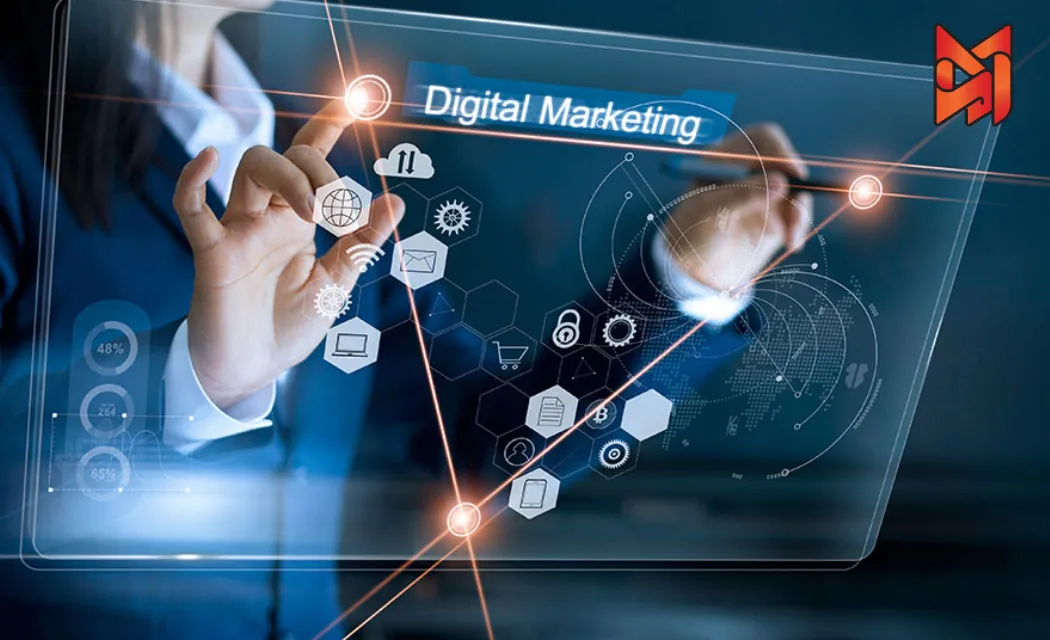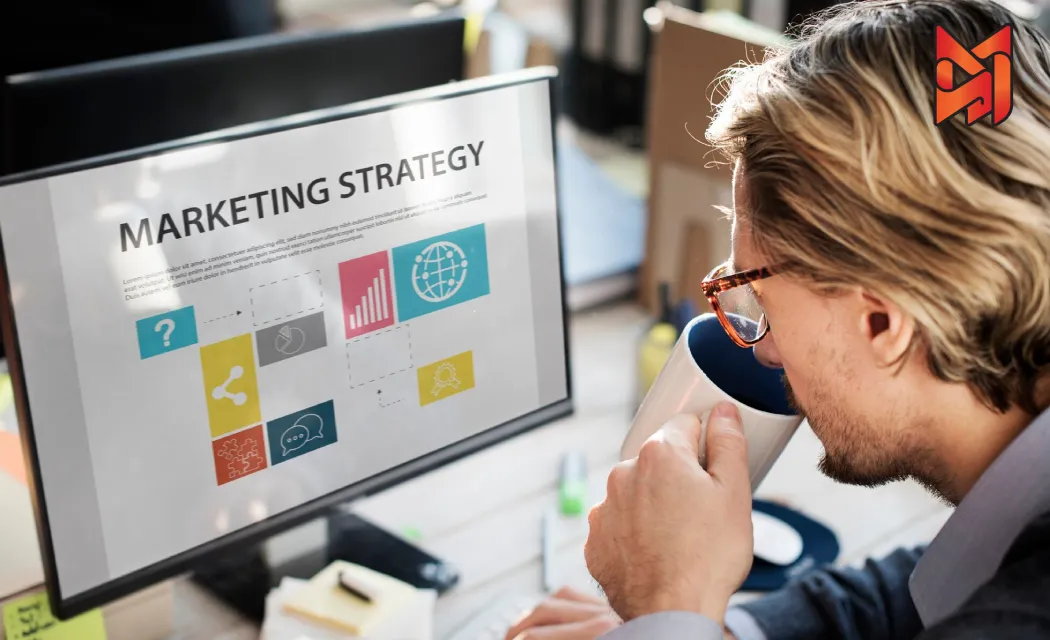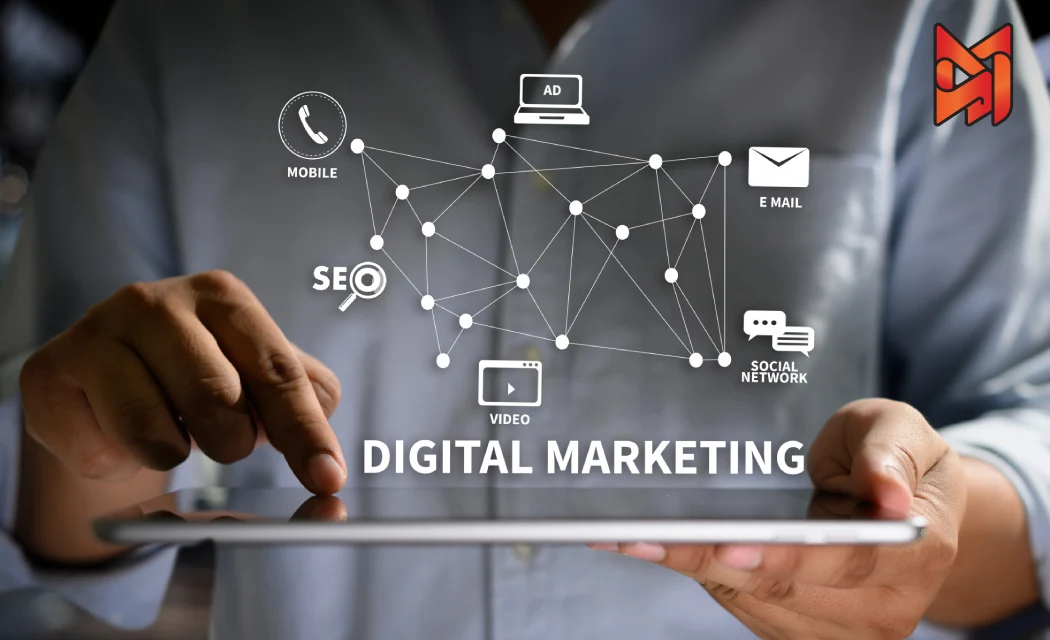The digital marketing landscape is rapidly changing, creating challenges and opportunities for marketers. As digital platforms multiply, marketers frequently manage various roles while working to sustain campaign momentum. Artificial intelligence (AI) has transformed the industry by bringing in new tools that simplify tasks, yet it is not the sole factor influencing marketing’s evolution. So, Knowing digital marketing trends especially in 2025 are essential.
In 2024, budget constraints will be more severe and are likely to continue into 2025, pushing teams to deliver greater outcomes with limited resources. It is vital to stay ahead of new trends—not just to adapt to changes in the industry, but also to capitalize on opportunities that can enhance your brand’s competitiveness. This comprehensive analysis highlights five key digital marketing trends for 2025, providing practical insights to boost your strategy.
Key Trends Influencing Digital Marketing in 2025
Our exploration of the digital marketing trends for 2025 focuses on five critical areas:
- Social Media: Competition between platforms such as X, BlueSky, and Threads is increasing, as is the rise of employee-generated content and a shift towards collaborating with customers rather than relying on influencers.
- AI Innovations: Approaches to address AI fatigue, the rise of AI agents, and AI’s revolutionary effect on e-commerce and advertising.
- Marketing Skills: The Marketing team is increasing the significance of soft skills, the necessity of mastering AI tools, and the importance of a wider business acumen.
- Search Marketing: The increasing importance of social search, progress in voice search technology, and the emergence of generative engine optimization (GEO).
- Content Marketing: The synergy between AI and handmade content, the revival of older content, and the emergence of Gen Alpha as a key audience.

1. Social Media Trends
Social media continues to be a dominant force, with users spending about 2 hours and 20 minutes each day on nearly seven platforms, as reported by Datareportal. This amounts to 14% of their waking hours, establishing it as a key avenue for brands to connect with various audiences. Here are the trends to look for in 2025:
The Clash of Real-Time Platforms
The drop in X’s popularity has opened opportunities for BlueSky and Threads to flourish. Many users are leaving X because of worries about low content quality, reduced engagement, and erratic moderation practices. BlueSky, established by X’s former CEO Jack Dorsey, attracts those looking for ad-free experiences, more control over their content, and specialized communities. With a global user base of 24 million, it is a platform worth monitoring, especially for journalists and creators.
Threads, Meta’s competing platform, has amassed 275 million users and continues to grow quickly. Its user-friendly interface, emphasis on discussions, and personalized feeds contribute to its appeal for organic content. “Threads is introducing features such as customizable feeds and trending topics almost daily, making it a formidable competitor to X,” remarked Alison Battisby, Founder of Avocado Social. Once Threads hits a billion users, Meta intends to implement advertising, providing fresh opportunities for brands.
Expert Tip: On Threads, focus on text-oriented, humorous, or informative posts to distinguish yourself from video-centric platforms.
Surge in Employee-Generated Content (EGC)
Employee advocacy is rapidly emerging as a strategy to enhance brand authenticity. On LinkedIn, expected to surpass 800 million users by 2025, employee-generated content (EGC) flourishes by highlighting genuine employee experiences. “LinkedIn’s organic reach is phenomenal—every prospect I’ve spoken to discovered me through the platform,” remarked Peter Murphy Lewis during a DMI podcast. With 94% of consumers preferring transparent brands (Forbes), EGC fosters trust through insider content, such as IKEA’s employee-centric posts.
Expert Tip: Ensure EGC remains genuine and unscripted to foster relatability and connection.
If you want to have a skillful team to manage social media, contact us today to have a free proposal.
Collaborating with Customers Over Influencers
Although influencer marketing continues to be effective, brands are increasingly embracing community-driven content produced by their customers. This strategy extends the impact of user-generated content (UGC) by establishing stronger connections with dedicated fans. “In 2025, brands will focus on nurturing communities rather than chasing big-name influencers”. A prime example of this is beauty brand REFY, which hosted a retreat for its community members in Mallorca, thereby strengthening brand loyalty and aspirational allure.
Expert Tip: Share promotions and updates with VIP customers through private channels, such as exclusive broadcasts or live events.

2. AI and Digital Marketing Trends
AI is now integrated into various marketing tools, ranging from social media platforms to CRMs. Marketing Week reports that 54% of marketers used AI in 2024, an increase from 37% the previous year. The focus for 2025 is on strategically leveraging AI to improve efficiency without overwhelming teams. Key AI trends include:
Combating AI Fatigue
The rapid adoption of AI has led to “AI fatigue,” where marketers feel overwhelmed by the pressure to integrate new tools. Learning AI effectively requires time, and poorly implemented tools can increase workloads. “AI isn’t here to replace creativity or strategy—it’s a tool to handle repetitive tasks,” said Jim Lecinski, Clinical Professor at Kellogg School of Management. Marketers should identify specific tasks that AI can streamline to free up time for strategic work.
Expert Tip: Audit your processes to identify areas where AI can save time, such as automating data analysis or content drafts.
The Emergence of AI Agents
AI agents—software programs that interact with environments to complete tasks—are poised to revolutionise marketing in 2025. “AI is shifting from content creation to campaign execution,” remarked Brian Corish of Accenture Interactive. For instance, AI agents can extract data from Google Analytics, create reports, and share them with teams, facilitating real-time campaign optimization.
Expert Tip: Utilise AI agents for automated reporting or A/B testing, directing attention toward high-impact campaigns.
AI’s Impact on E-commerce
AI is revolutionizing e-commerce by enhancing customer experiences and streamlining operations. Key applications include:
- Personalized Recommendations: AI analyzes behavior to suggest relevant products.
- Chatbots: AI-driven assistants handle inquiries and guide purchases.
- Dynamic Pricing: Algorithms adjust prices based on demand and competition.
- Visual Search: Customers upload images to find similar products.
- Voice Commerce: Integration with Alexa enables voice-based shopping.
- Segmentation: AI groups customers for targeted campaigns.
- Content Generation: AI automates product – Sentiment Analysis: AI analyzes reviews to improve products.
- Marketing Automation: AI optimizes email timing and content.
- Hyper-Personalized Ads: AI adjusts ads in real time.
“AI will drive hyper-personalized e-commerce, such as recommending outfits based on the upload of a wedding invitation,” Lecinski noted.
AI-Powered Advertising
AI improves advertising campaigns through better targeting and performance optimisation. Tools such as Meta’s Advantage+ and Google’s Performance Max leverage machine learning to streamline campaign management. “AI provides marketers with increased control, enabling strategic shifts like reallocating budgets from Gmail to Google Maps,” stated Nikki Lindgren of Pennock.
3. Digital Marketing Services in Dubai by DiMarketo
In Dubai’s vibrant and competitive market, DiMarketo stands out as a leading digital marketing agency. We offer tailored solutions to help businesses thrive in the Middle East’s dynamic digital landscape.
DiMarketo specializes in comprehensive SEO services in Dubai, including Arabic keyword research, RTL website optimization, and localized content creation to boost search rankings in the UAE and beyond. Dimarketo utilizes social media platforms such as Instagram and LinkedIn to craft culturally relevant, engaging campaigns that appeal to Dubai’s diverse audience. They also leverage AI-driven tools for targeted advertising, optimizing e-commerce, and performing data analytics to guarantee measurable outcomes.
With a deep understanding of the region’s cultural intricacies and consumer habits, DiMarketo empowers brands to forge genuine connections and achieve sustainable growth in this dynamic market.

4. Digital Marketing Skills and Job Trends
With the progression of digital marketing, the skills necessary for success are changing. By 2025, marketers will need to combine technical skills with a wider range of competencies to remain competitive.
If you want to know how to build a digital marketing team, read our article on this topic.
The Value of Soft Skills
Although technical skills such as SEO and analytics are crucial, employers are placing more emphasis on “durable” soft skills like collaborative problem-solving, which have surged 138% in demand since 2021 (LinkedIn). According to Mischa Mcinerney from the Digital Marketing Institute, “Soft skills give marketers a competitive edge in driving business impact.”
Expert Tip: Build soft skills through mentorship, workshops, or leadership courses.
Refining AI Skills
Currently, 46% of marketers utilize AI for research, while 44% employ it for campaign optimization (Marketing Week). Therefore, honing AI skills is essential. Prioritize tools that support your work, such as Chatgpt for creating content outlines or utilizing advanced analytics platforms. “Everyone needs baseline AI fluency to leverage it as a competitive advantage,” McInerney emphasized.
Expert Tip: Follow AI experts on LinkedIn or take advanced AI courses to enhance your expertise.
Expanding Beyond Marketing
Today’s marketers need a solid grasp of essential business principles, including finance and growth strategies. “Marketers who grasp the financial side of business will drive incremental growth,” Lecinski emphasized. Rather than fixating only on tactics, it’s important to recognize that these are becoming more automated.
5. Search Marketing Trends
Search marketing is experiencing significant changes, as Gartner forecasts a 25% decline in traditional search traffic by 2026. To sustain visibility, marketers need to adjust to evolving search behaviors.
The Rise of Social Search
Consumers, particularly those from Gen Z, are increasingly using platforms such as TikTok and Instagram for their search needs. “Social search is exploding, with users leveraging YouTube and TikTok for queries,” stated Luke O’Leary of NP Digital. Additionally, AI-driven conversational searches enable users to make natural-language inquiries, such as “family-friendly hikes near Dubai.”
Expert Tip: Integrate keywords into social profiles and create shareable content to enhance social SEO.
Voice Search Expansion
Voice search is on the rise, as 51% of users look up products and 22% make purchases using voice commands (Narvar). Upcoming applications may involve voice assistants designing meal plans or facilitating grocery orders. “Voice commerce provides zero-click convenience,” McInerney stated.
Expert Tip: Optimize for conversational keywords and local SEO to effectively capture voice search traffic.
Generative Engine Optimization (GEO)
GEO optimizes content for AI-driven search results from platforms like Google AI Overviews and ChatGPT. With 79% of consumers expected to use AI-enhanced search in 2025 (Gartner), GEO is critical. “Marketers must shift from SEO to GEO to stay visible,” O’Leary said.
Expert Tip: Review AI Overviews to understand query formats and optimize content accordingly.

6. Content Marketing Trends
Content continues to be a fundamental aspect of digital marketing, yet crafting effective content demands a strategic emphasis. Notable trends for 2025 consist of:
Reviving Older Content
Outdated content can regain momentum through updates. Research by Neil Patel indicates that refreshed content can increase traffic by 106%. “Add fresh data, infographics, or videos to align with evolving user expectations,” O’Leary advised.
Expert Tip: Perform a content audit to pinpoint assets that need updates, including original research to enhance authority.
If you need content marketing services in Dubai, contact us today.
Combining AI and human content
Consumers are sceptical of solely AI-generated content, as 50% can identify it, leading to 52% reducing their engagement (O’Leary). Merging AI for research or draft writing with human creativity produces high-quality content that meets Google’s E-E-A-T (Experience, Expertise, Authoritativeness, Trustworthiness) standards.
Expert Tip: Consider using tools like Google’s NotebookLM for research or podcast-style content generation.
Targeting Gen Alpha
Gen Alpha, born between 2010 and 2025, is becoming a socially conscious, tech-savvy group. They emphasize diversity, sustainability, and support for others. “Brands must engage Gen Alpha through gamified content and community-driven campaigns,” said Lecinski. Crunch Labs’ engineering-centric build boxes illustrate this strategy.
Expert Tip: Integrate gamification elements, such as quizzes or challenges, to engage Gen Alpha.
Final Thoughts
The digital marketing landscape in 2025 is set to be dynamic and transformative. Due to the emergence of AI-driven personalization, social search, and Gen Alpha, marketers need to remain agile and inquisitive.
Brands can forge authentic connections with audiences by embracing new platforms like Threads, strategically employing AI, and creating genuine content. The crucial point is to take action now: experiment with innovative tools, enhance skills, and adjust strategies according to changing consumer behaviors to maintain a competitive edge.





